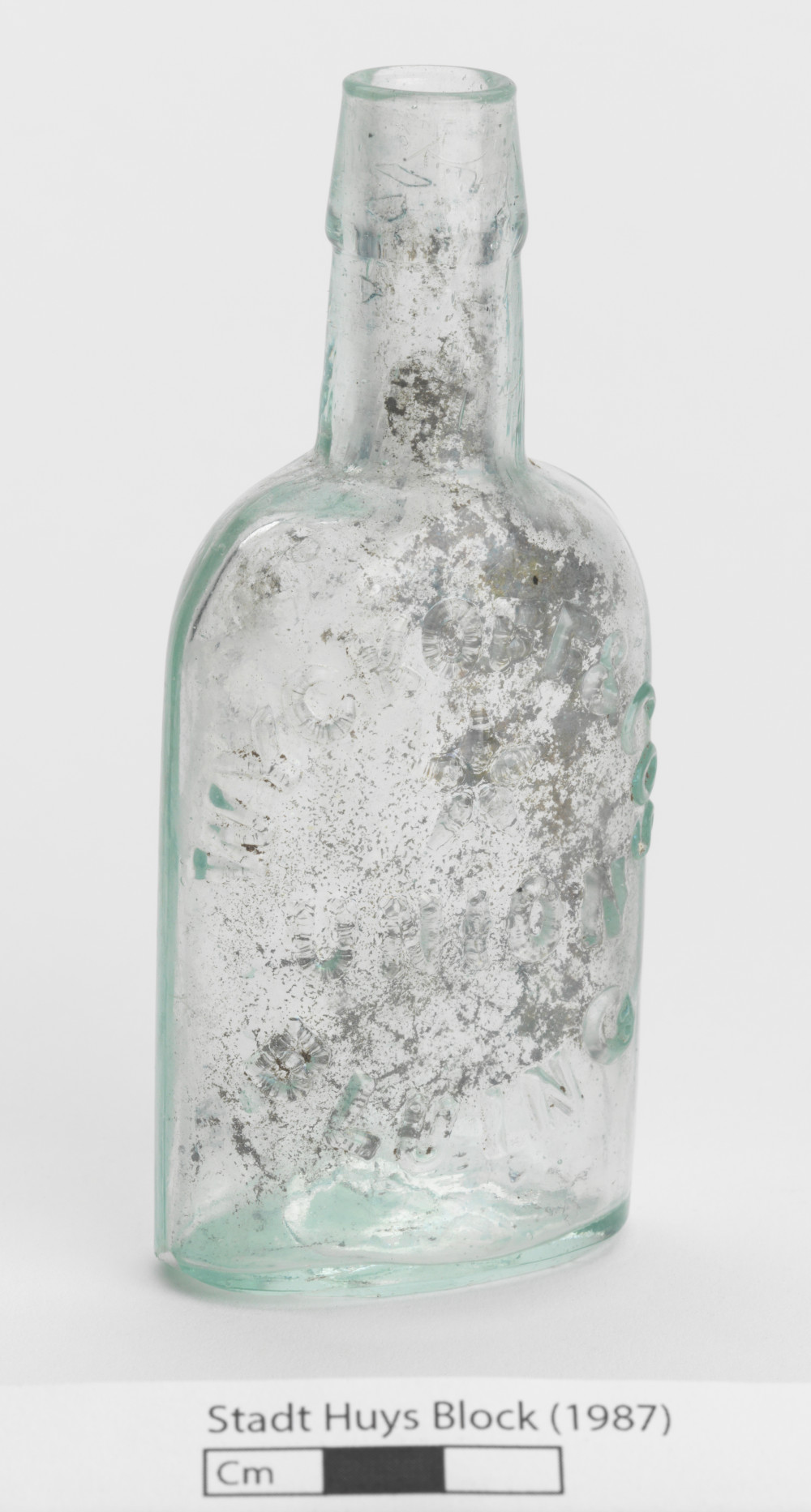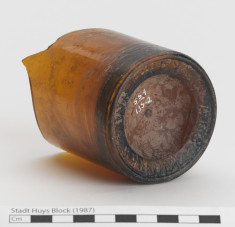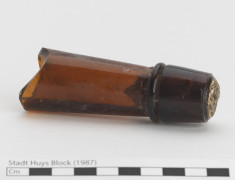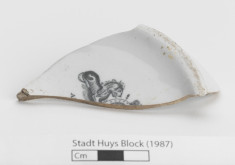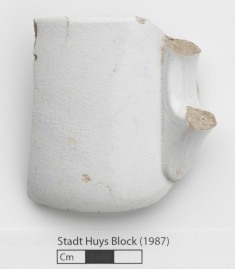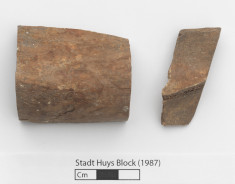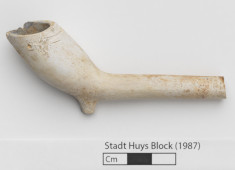Introduction: People have occupied and modified Lot 16 – a small parcel of land that once fronted Pearl Street – for a long time. However, only two buildings are on record as having been built on the Lot in the past 400 years. The earliest Colonial building was constructed sometime between 1660-1672 and the latest historic building in 1870. In addition, walls, outbuildings, and other structures were installed over the life of the Lot. Each building episode leaves below-ground traces for archaeologists to find. The history of a site can then be pieced together by "reading" the layers beneath the earth's surface (also known as stratigraphy) and analyzing its artifacts. One of the main tasks for the archaeologists on the Stadt Huys project was to determine what, if any, historical remains still existed beneath the modern ground surface.
Rationale: Lot 16 is a small area to the north of Lots 8 and 9. The lot was mostly residential from 1660 until 1835. The last structure was built on the lot in ca. 1870. Project archaeologists excavated Test Cut L to test a small area enclosed by cut and uncut stones projecting from the southeast corner of Lot 16. The test cut yielded the footprint and remains of a chimney for the 1870 building.
Results: Two major deposits were found in Test Cut L. This deposit was the thickest and probably relates to the destruction or reshaping of the ca. 1870 building's original chimney in the late-19th-century.
Lot 16, Test Cut L, Stratum I, Level F
-
Collection method
Shovel, Trowel, Screen (1/4-inch mesh). Arbitrary 4-inch Level.
-
Soil description
Black Sandy Silt
-
Munsell
2.5Y 2/0

